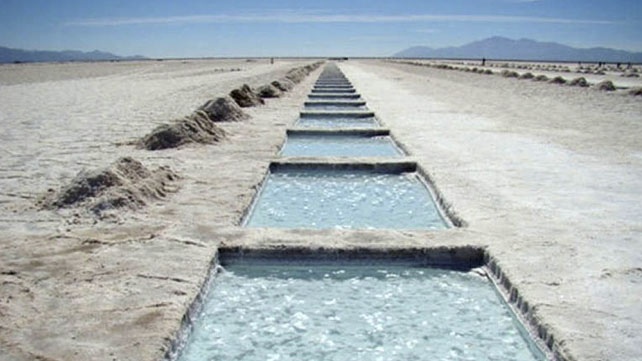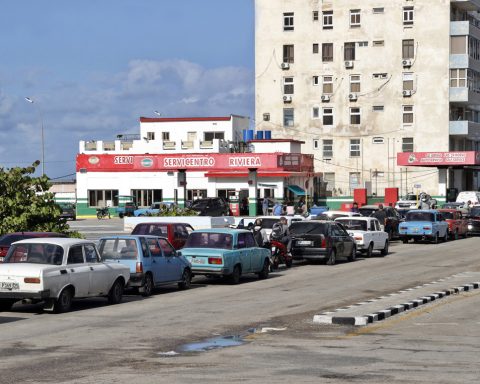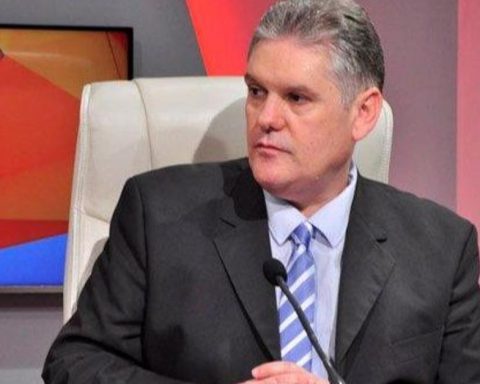The CFO of the company Livent, Gilberto Antoniazzi, stated that the lithium and electric vehicle industry is moving towards a regionalization of the provision of the main components to break extreme dependence on China, This will open better opportunities for Argentina to become an important player in the sector and extend its value chain.
The director of the American company, in an interview with Télam during his visit to Buenos Aires, analyzed the development of the local and global lithium industry and mining operations in the Salar del Hombre Muerto, in the province of Catamarca, where it is making an investment of US $ 640 million to double its production capacity.
“Livent has been in the country for 30 years producing lithium for the entire range required by cell phones, tires, polymers, agrochemicals and the automotive industry, we know well the salt, the quality of the product that can be obtained and since then our investment in the country exceeds US $ 1 billion, “said Antoniazzi.
In this new investment for about US $ 640 million, an announcement made in the middle of the year, will allow the company “double the production capacity of the current almost 20,000 tons of lithium carbonate to 40,000 tons” with the completion of the first stage for the first quarter of 2023 and the second stage for the fourth quarter of that same year. “
The bulk of this investment for operations carried out at an altitude of 4,500 meters will be deployed during 2022, with a peak of jobs of up to 900 operators directly to be able to fulfill the production stages of the following year.
“This performance will allow us to meet a growing global demand for very high quality lithium for the electric vehicle revolution. It is estimated that by 2025 approximately 15% of the vehicles sold will be electric, and the demand for lithium carbonate will grow from the current 300,000 tons to 1.1 million tons, more than three times, “said Antoniazzi.
For the manager, “the global requirement exists to ensure this type of investment, and the great challenge for the lithium industry is for new producers to be able to produce with the quality required for a lithium carbonate and lithium hydroxide that require automotive batteries. “
Regarding the prospects that this global market opens up to Argentina as one of the main producers of the mineral, Livent’s CFO explained: “The pandemic brought us great learning to the world economy, mainly from the United States and Europe, and that is that extreme dependence on China is not healthy for large economies.”
Specifically in the lithium and battery sector, he said, “85% of the hydroxide is made in China, about 70% of the batteries and cathodes are also produced in China” and the rest in a few other markets, and the electrification-oriented automotive industry took note of this situation.
“The American and European governments have been very focused in recent months on securing the electric car chain in their countries and regions. From the production or conversion of lithium and all minerals, to the production of the vehicle. The entire ecosystem needs to be regionalized. “, said the Brazilian national executive, considering that when this stage is guaranteed” other countries may join. “
It is in this context that it opens a medium and long-term development expectation for the Latin American economies.

“The investment for a battery industry requires billions of dollars, it is a very intense investment and traditionally they are not in countries like Brazil and Argentina” immediately, said the manager, but “it is possible to think that it will happen in about 10 years in a process of regionalization “.
Regarding investment and operating conditions in Argentina, in high investment activities such as those in the mining sector, Antoniazzi stressed that “in the last 30 years the company has built a very constructive relationship with the governments and with the communities that are close to the Salar , with the commitment to hire at least 70% employees and companies from Catamarca “.
“Livent’s shareholder has a different perception of risk in Argentina than in Australia, for example, which is another major lithium producer, but like any country it has its challenges and we are comforted with investing here and we are confident of having a return on that investment otherwise we would not commit hundreds of millions, “he said.
Finally, Antoniazzi referred to the evolution of international prices for so-called white gold, what will be a high demand product also for the renewable energy industry and its storage power, within the framework of the energy transition.
“The reference for many may be the spot price of lithium in China, which is relevant for that country, but not in terms of what is achieved with clients from the United States, Europe, Korea and Japan, which registered fluctuations from 7 to 7 $ 25 “for the impact of the pandemic on both demand and production, he explained.
In that sense, he added that “current prices in China reflect a moment. It will not remain at this level nor will it be good for the industry to remain at that level because it becomes more expensive” the entire production chain with a situation that called “abnormal”.
That is why the reference for the company is “long-term contracts with customers to provide electric vehicles with the batteries they will require for the next few years for which large companies such as GM, Ford, Renault, VW or Tesla, they are not buying from day to day, but they define a price to 5 or 8 years “.















